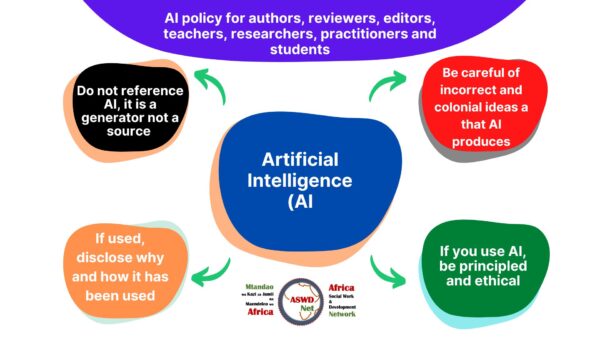
Artificial Intelligence (AI): How to avoid students cheating assessments
It is true that Artificial Intelligence (AI) tools can think for students and make them less critical learners. Ultimately, they become less critical practitioners or graduates. The other challenge with AI is that it can provide valueless information, resulting in students getting low grades or failing or being misled. It has to be used with care. It can be helpful, just as Wikipedia, by proving summaries or handfuls of information and showing the sources. It can also provide students with better English language and new ideas. Unlike Wiki based sources, AI can be faster and more direct in responses. The information found in AI was entered by people like you, and it can be grossly biased. AI relies on the internet, however, as we all know there is very little content from Africa on the internet. With AI, more and more Africans are driven away from creating content, and therefore there will be less and less African knowledge in there.
In education, the most immediate impact of AI is in assessments. How do we assess students in ways that make them thinkers and creators and not copy-pasters? Below are some suggestions:
- Avoid essay type assessment tasks and instead give practical tasks such as create a group, make a create a development plan or create a portfolio. This applies for both coursework and examinations.
- Use practical assessments such as presentations, performances, home visit, or facilitating groups.
- Questions should be relevant to your local situation and not general. Questions like “What are social work values or ethics? or Provide a criticism of the modernization approach” are no longer relevant, because in AI students can download an essay which is well referenced and written and pass an assessment or exam. Instead ask them to ‘Describe step by step how to practice a home visit ethically with a Tswana family or Analyse the development plan of village X or community Y.”
- Focus on high level thinking, such as creating or evaluating. Avoid general descriptions and explanations.
- Use local references or literature.
- Provide assessments that solve problems, real life problems.
- Make your assessment rubric, criteria or mark sheet more elaborate, setting clear expectations for students.
- Design original assessments, do not copy and paste from the internet.
- Increase local languages and phrases in questions and allow students to do the same in their assessments.
- Read or review the assessments (if they are written) and provide a lot of feedback. In reading, you can easily pick plagiarism.
The blog link at the end provides information about different types of assessments, including but not limited to those in the text box below.
TYPES OF ASSESSMENTS
- Classroom-based assessments – happen in the classroom or exam room.
- Community-based assessments – happen in the community including at home or school.
- Agency-based assessments – happen at an organisation providing social work and development services. They are different from placement-based assessments.
- Field-based assessments – happen in the field, outside homes and offices. For example, at an irrigation site, dam construction site, cultural event, cultural site etc.
- Laboratory-based assessments – happen in a lab, e.g. a simulation lab, a simulation work room etc.
- Placement-based assessments – happen during student placement under the supervision of a qualified social worker or development practitioner.
Lastly, know that AI detectors or plagiarism software do not help, what will help is to change your assessments and make them more authentic to Africa.
Use the form below to subscibe to Owia Bulletin.
Discover more from Africa Social Work & Development Network | Mtandao waKazi zaJamii naMaendeleo waAfrika
Subscribe to get the latest posts sent to your email.


